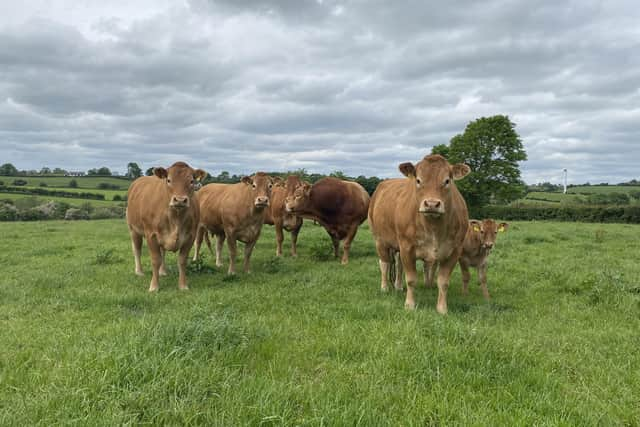Introducing herd restrictions for BVD is a ‘priority’ for department
and live on Freeview channel 276
This assurance was given by the Agriculture Minister Edwin Poots in a recent letter to industry representatives from the producer, processor and veterinary sectors.
The step, announced by the minister, has been welcomed by the BVD Implementation Group, as it is one of a range of measures they have been calling for for several years, in order to reduce the chance of BVD virus spreading.
Advertisement
Advertisement
According to the minister, work is ongoing within the department to progress the legislation as early as possible in the next mandate.


It is understood that the development will take until at least the end of 2022.
Eradication of BVD is a priority for industry stakeholders, given the financial and environmental gains to be made.
The recommendation of the BVD Implementation Group (BVDIG) has been that herd restriction provisions should be such that they will remove the risk of transiently infected animals triggering breakdowns in other herds.
Advertisement
Advertisement
A spokesperson stated: “Disappointment has been expressed in industry circles that several key BVD control issues have not been addressed.
“The rolling animal level incidence of BVD increased for nine months in a row during 2021, and it has been clear that additional measures are needed on top of the actions that industry has already taken.
“The timescale for the introduction of measures, such as the notification of neighbouring outbreaks, so that biosecurity measures may be taken, or the application of BVD herd level statuses have not been outlined and the BVDIG continues to call for these essential steps to be implemented, so that the gains that have been made previously can be reinvigorated.
“The NI BVD Programme has fallen further behind the ROI Programme.
Advertisement
Advertisement
“This is not a position that the NI cattle industry wants to be in, given that, once the ROI gains EU approval of its programme and recognition of BVD-free status, additional requirements will be put in place that will affect trade of cattle being sold from NI to the ROI for breeding and finishing purposes.
“In addition, there is clearly a need for BVD to be made a notifiable disease in Northern Ireland.
“BVD is already notifiable in England, Scotland, Wales and the ROI, and industry’s understanding is that it should now be a legal requirement in NI, under EU legislation.”
They continued: “The BVD Implementation Group and industry stakeholders have been forced to revise the timing of their eradication aims, given the lack of guaranteed and adequate support from DAERA.
Advertisement
Advertisement
“However, there is a determination being expressed within the cattle industry, and by veterinary surgeons across NI, to press forward with the scheme until the necessary means are provided that will allow an acceleration of progress.
“Industry leaders continue to invite DAERA to make significant contributions to the eradication of endemic diseases - diseases which are present widely on NI farms and which have significant animal health, welfare, and economic implications.
“The evidence shows that their control will also contribute to the amelioration of anti-microbial resistance and greenhouse gas emissions,” the spokesperson ended.